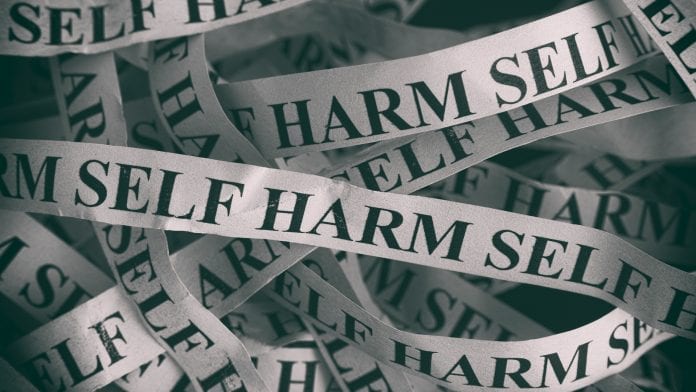
Research published in the journal Archives of Suicide Research has revealed that people who self-harm often feel both positively and negatively about their behaviour
The study reveals that people who self-harm often don’t like the way their behaviour affects their lives and troubles those around them, it also helps them feel safe and secure.
Reasons behind self-harm
People who felt more positively about their self-harm were found to self-harm more frequently. In contrast, stronger negative feelings about self-injury were not related to how frequently this behaviour occurred, but they were related to feeling more shame.
And the study, said the team at The University of Manchester, University of California, Berkeley, and Edith Cowan, may have important implications for how people who self-injure are supported.
Dr Peter Taylor from The University of Manchester said: “Non-suicidal self-injury: the intentional infliction of damage to one’s body without suicidal intent, is a major public health concern,”
“But there is a societal stigma attached to it – and we can often focus on the problems self-injury causes and the reasons why we feel someone should stop. This research highlights the importance of better understanding the personal reasons why a person might continue to self-injure.”
However, judgemental and critical attitudes from clinicians and the public towards people who self-injure are not uncommon.
Attitudes towards self-harm
Taylor explained: “Because we now know that these people find some comfort in what they do, we have a deeper understanding of why shaming is likely to have no effect – and could even make matters worse.”
“Far better to attempt to get to the root of this behaviour by understanding what drives it using recognised and proven psychological techniques.”
Cameron Latham, a mental health consultant with experience of self-harm said: “When I attended with self-inflicted injuries, it was never to get a lecture, unnecessary pain, or to panic people. I think my overriding need was for just a few minutes of kindness and care which I was unable to provide to myself.”
Measuring beliefs around self-harm
Studies have shown that around 17.2% of adolescents and 13.4% of young adults have engaged in non-suicidal self-injury at some point. This can include behaviours such as cutting or hitting oneself.
The study team, who sampled 650 people from the UK and US, developed a questionnaire to measure positive and negative beliefs about self-injury. People who endorsed positive beliefs self-injured approximately 2.7 times more often in the previous year, compared to those who disagreed that they had positive beliefs.
Talking therapies such as dialectical behavioural therapy and cognitive behavioural therapy have been shown to help many people who self-injure.
























